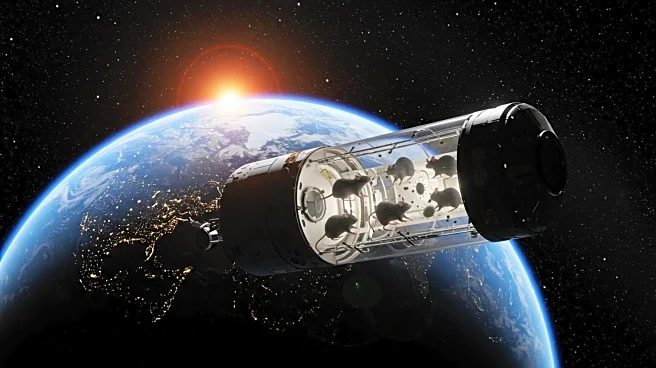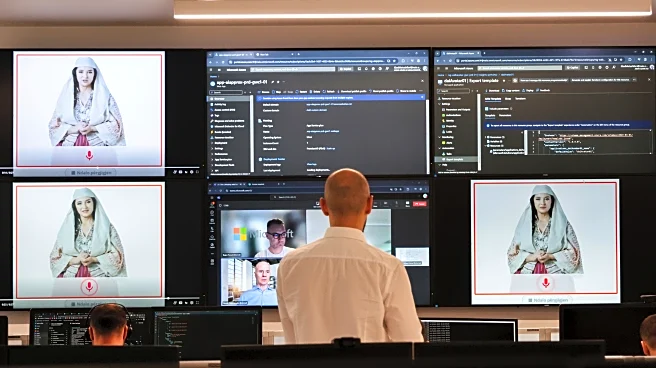What's Happening?
Russia has launched the Bion-M No. 2 biosatellite from the Baikonur Cosmodrome in Kazakhstan, carrying 75 mice, 1,000 fruit flies, and various microbes, cell cultures, and plant seeds. This mission aims to study the effects of spaceflight on these organisms over a month-long period. The Bion-M No. 2 mission follows the Bion-M No. 1 mission launched in 2013, which also sent a diverse array of living organisms to orbit. The current mission will expose its payloads to increased cosmic radiation by orbiting over the poles, compared to its predecessor. The capsule will return to Earth after a month, allowing researchers to analyze the effects of microgravity and radiation on the organisms.
Why It's Important?
The Bion-M No. 2 mission is significant for advancing space medicine and biology, providing insights into how living organisms respond to the conditions of spaceflight. This research is crucial for preparing for human exploration of deep-space destinations, such as the moon. Understanding the biological impacts of space travel can inform the development of protective measures for astronauts and contribute to the success of future crewed missions. Russia's involvement in space medicine research underscores its commitment to participating in international efforts, such as the China-led International Lunar Research Station, aimed at establishing a crewed moon base in the 2030s.
What's Next?
Following the completion of the Bion-M No. 2 mission, the capsule will return to Earth, where scientists will conduct detailed analyses of the biological samples. These studies will focus on the effects of microgravity and radiation exposure, providing valuable data for future space missions. The findings could influence the design of life-support systems and health protocols for astronauts on long-duration missions. Additionally, Russia's continued collaboration with international partners on lunar exploration projects may lead to further advancements in space medicine and technology.
Beyond the Headlines
The Bion-M No. 2 mission highlights the ethical considerations of using animals in space research, as scientists aim to balance the pursuit of knowledge with the welfare of the organisms involved. The mission also reflects broader geopolitical dynamics, as Russia seeks to maintain its influence in space exploration amidst growing competition from other nations. The collaboration with China on lunar projects indicates a strategic partnership that could shape the future of space exploration.









